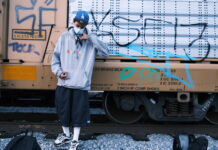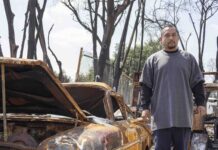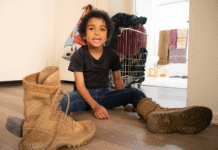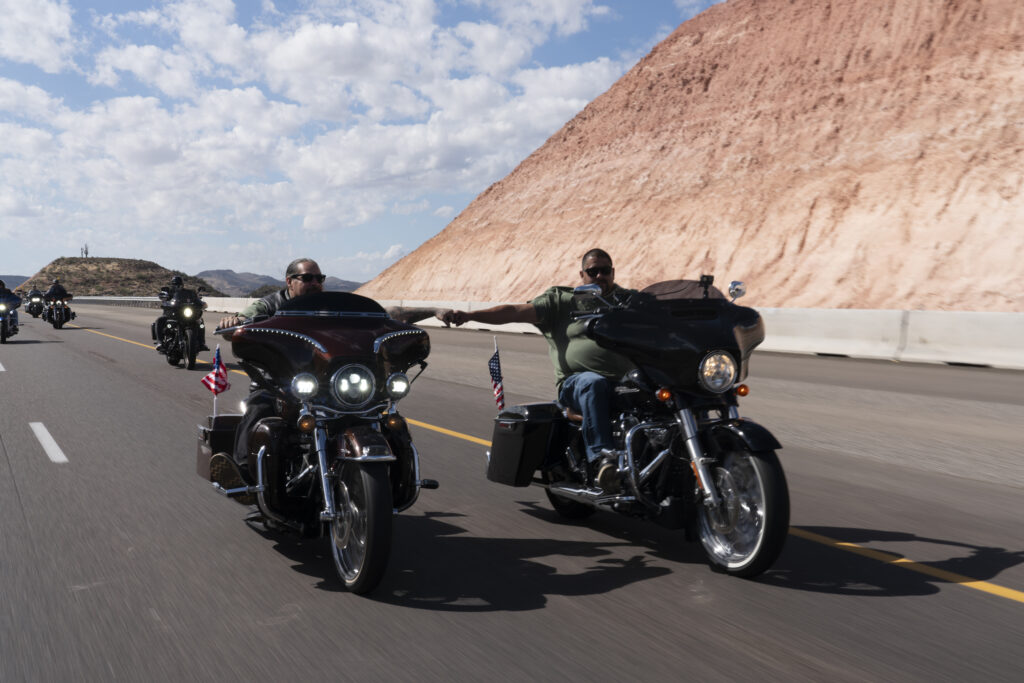
In early October, about a dozen members of the Bunker motorcycle club, lead by Ray Perez, each wearing their black leather vests, cruised along the I-10, heading from Phoenix to Mormon Lake, American flags flapping off the rear of their Harley-Davidsons.
The club’s annual trek joined them with more than 200 others at St. Joseph’s Camp for a veterans healing retreat, run by Operation Restoring Veteran Hope. The event is in the mountains, a break from city life. Veterans and bikers spend days kayaking, horseback riding, talking around the fire at night and riding their bikes.
Motorcycle clubs are more than a group riding the roads. It’s a way to share history and common interests, and to find comfort in camaraderie, with the road and motorcycles serving as a form of therapy.
“Four wheels move the body, but two wheels move the soul,” Perez said.
Perez first started riding bikes when he was a kid, and the feeling of freedom has stayed with him. “
When I am on my bike, it’s like the world disappears. It’s just me, the road, and my thoughts. I feel peace,” he said.
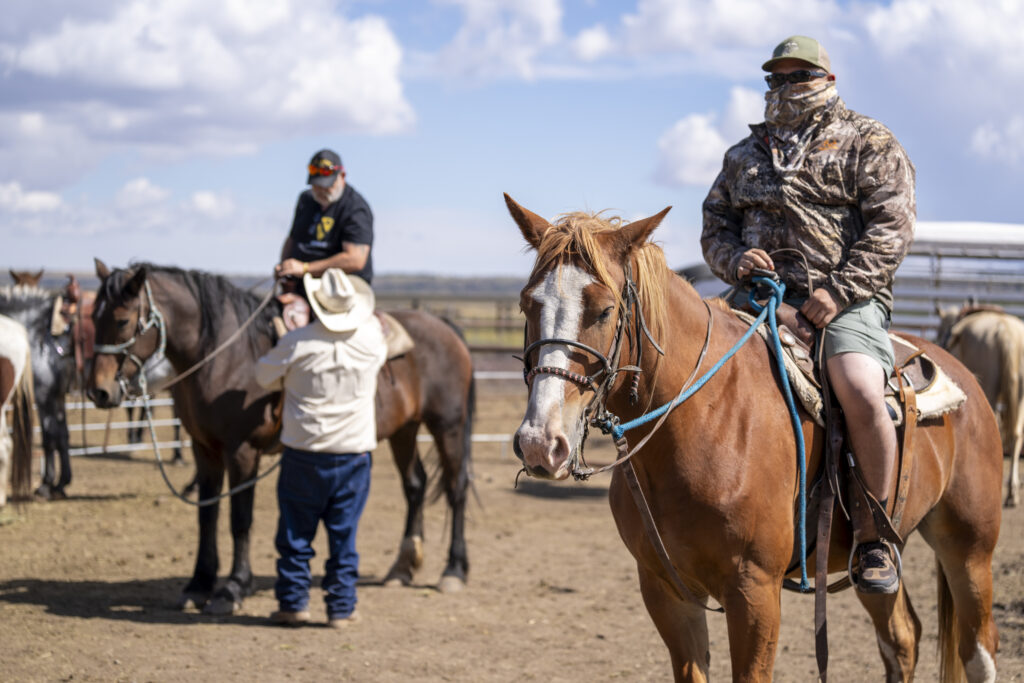
Perez’s love for motorcycles also gives him a strong community. His group, Operation Restoring Veteran Hope, is there to help veterans, but the big motorcycle community has the same ideas.
Todd C. Wiggen, a professor who studies motorcycle culture, said biker clubs give people a family that is hard to find in other places.
“For bikers, it’s not only the destination,” Wiggen said. “It’s about the journey and the friends made along the way.”
Many bikers plan long trips on beautiful roads, through mountains, and through small towns.
“You see the world in a new way,” said Armando Cantu, the vice president of Operation Restoring Veteran Hope. “You are close to nature and the weather. It’s real.”
Motorcycle clubs often go on trips together and help each other.
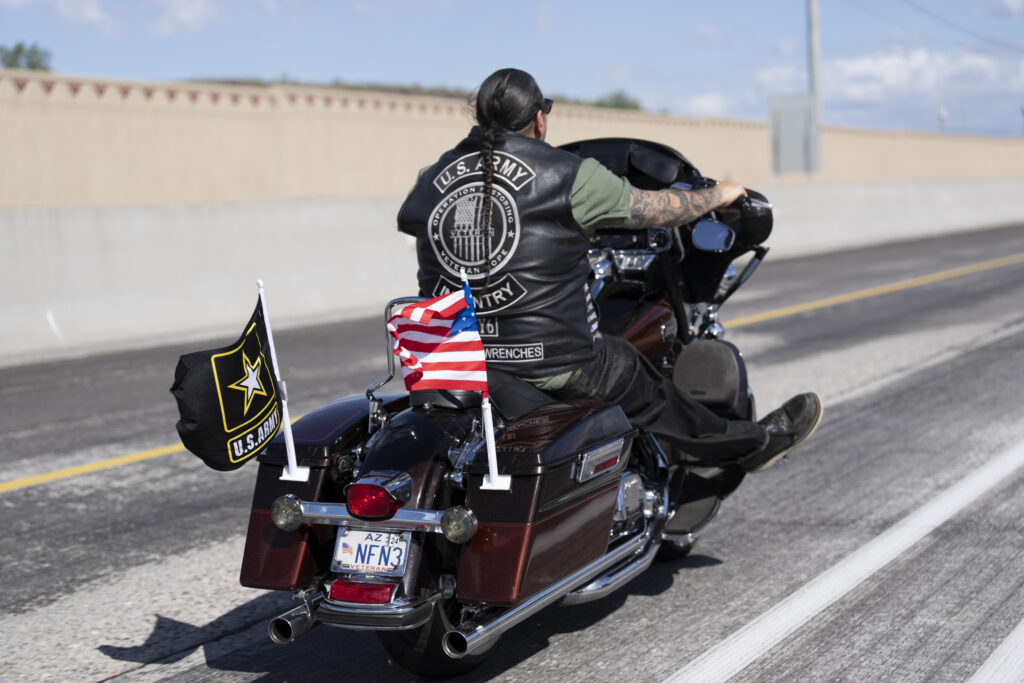
“When you ride with a group, you are part of something big,” Cantu said. “You help each other if someone’s bike has problems. It’s about respect, loyalty and brotherhood. Every trip is different, and you learn something new each time.”
Perez explained that the trip to Arizona is not only for fun.
“It’s about being together with others who understand what I went through,” he said. “
For veterans, this is important. After leaving the military, life can feel lonely, and biker clubs help with support.
“For veterans, biker clubs give a way to share feelings, make friends, and find a family they lost when they left the military,” Wiggen said.
Perez and Cantu help other veterans who want to go on the retreat by raising money.
“We work all year to make sure as many veterans can come as possible,” Cantu said. “The retreat helps vets relax and find peace. We feel proud when we can make it possible for others to join us.”
Wiggen explained that biker clubs are often misunderstood by people.
“People think of bikers as dangerous because of movies and shows, but most motorcycle clubs are peaceful and care about helping others,” he said. “The media shows biker gangs as involved in crime, but that is not true for most clubs. Many bikers even do charity work to support their communities.”
Perez has seen this misunderstanding of bikers change over time.
“In the past, people would look at me and think I was trouble just because I was wearing a leather jacket and my club patch,” he explained. “Now people know more about us. We raise money, and we help out in the community, so people can see who we really are.”
Wiggen believes that these biker clubs are important for veterans, especially those who have trouble adjusting to life after the military.
“In the military, people have strong connections to each other, like a family,” Wiggen said. “When they come back to regular life, they sometimes feel like something is missing. Biker clubs bring back that feeling of family and support. It gives them a place to feel safe, understood, and part of something bigger.”
Perez believes the future of biker culture is bright. He thinks biker clubs will keep growing and become more open to different people.
“We’re seeing more family-friendly clubs,” he said. “In the past, clubs used to have strict rules about who could join, but now it’s more open. We’re focusing on building a community.”

